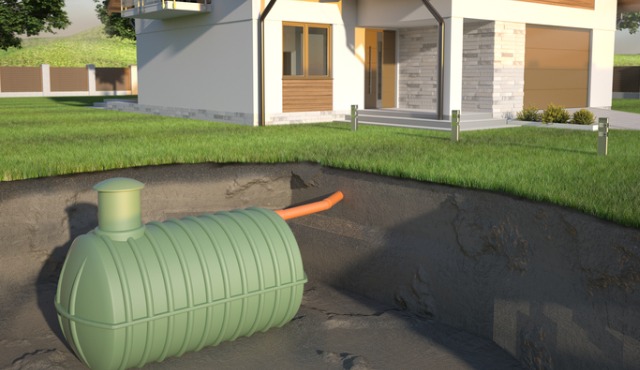By Brentnie Daggett, Rentec Direct
Though it may not be the most glamorous side of being a homeowner, understanding the basics of a septic system is extremely important if you own a property that uses one. Without proper maintenance, a small septic issue can turn into a catastrophe that ends up costing you precious time and money.
Does My Home Have a Septic System or a Sewer System?
This is an important question to ask before you invest in a new home. If you’re not familiar with the difference between sewer and septic systems, or you’ve never maintained a septic system before, there’s likely to be a bit of a learning curve.
Water and waste need to leave our homes, and they do so either through a septic system or a sewer system. Sewer systems are common in more densely populated areas—they connect all of the homes in your neighborhood and are owned and operated by the local government. You’ll likely pay a bill for this utility to the sewer system, or as part of your water bill. A septic system, however, is an individual unit associated with your home only and is solely your responsibility. This requires some consideration in terms of ongoing costs and maintenance, which will be something you’ll have to handle as the homeowner.
Before pulling the trigger on a home that uses a septic system, consider asking questions about the installation, maintenance, inspection and documentation of the system so you know what you’re getting yourself into.
How Does a Septic System Work?
Septic systems can have a number of different configurations, but the main goal is to dispose of water and waste in an efficient and ecologically friendly manner. All of the water and waste from your home will exit through a main drainage pipe and empty into a septic tank. Wastewater will make its way through the system to a leach or drain field where it filters into the soil, but the rest of the waste in the tank will need to be removed from time to time.
What Does Septic System Maintenance Involve?
Non-biodegradable items, weather conditions, water leaks and root systems are all examples of scenarios that have the potential to cause damage to your septic system. The best way to ensure your septic system’s longevity is to stay on top of regular inspections, cleaning, pumping and repairs. Routine inspections coupled with regular cleaning and pumping should help you avoid repairs, but it is best practice to tackle any minor repairs right away before they become bigger issues.
Inspections should take place just about every three years or so to address any concerns like cleaning, pumping, or repairs. You’ll be notified of any potential hazards like growing tree roots, damage from heavy rain, or a water leak in the system. Many factors go into deciding when your septic tank needs to be emptied, but typically this takes place every three to five years. Pooling water near your septic tank, bad smells and slow drains can all be signs that it’s time to have your septic system serviced.
Your septic system is not a trash can! Always avoid putting items like grease, coffee grounds, cat litter, chemicals, paint, paper towels and diapers into your system as they can cause major complications.
The Bottom Line
Try to keep detailed records of all maintenance, service and repair to your septic system, as they can be important for insurance claims or an eventual home sale. Unless you have specific experience inspecting septic systems, it’s best to turn to a trusted septic service professional for the most accurate inspection. Minor septic system issues and maintenance fees should only cost you a few hundred dollars every year, but repairing or replacing a malfunctioning system can quickly spiral into thousands and thousands of dollars.
 Brentnie Daggett is a writer and infographic master for the rental and property management industry. She loves to share tips and tricks to assist landlords and renters alike. To learn more about Daggett, and to discover more great tips for renters, visit www.rentecdirect.com.
Brentnie Daggett is a writer and infographic master for the rental and property management industry. She loves to share tips and tricks to assist landlords and renters alike. To learn more about Daggett, and to discover more great tips for renters, visit www.rentecdirect.com.








